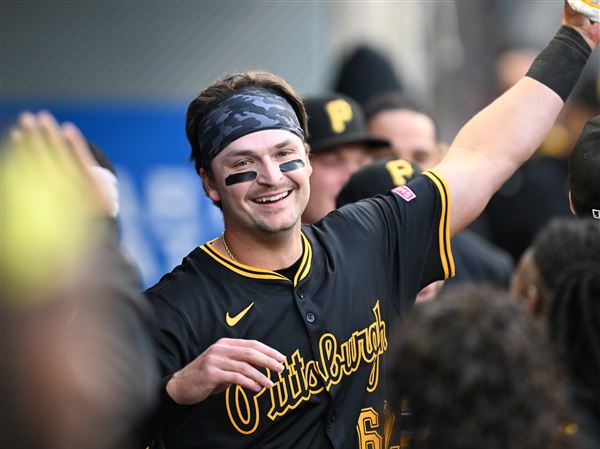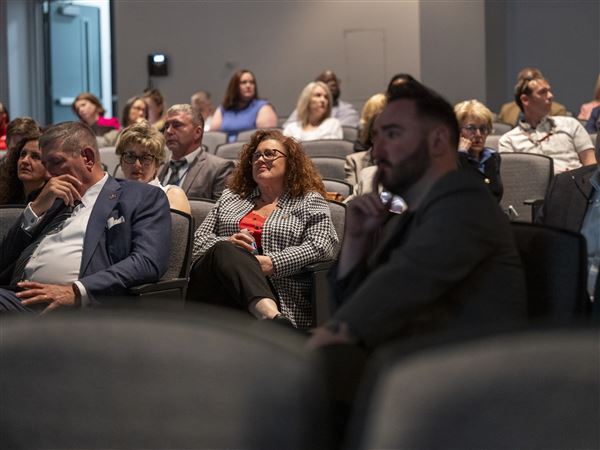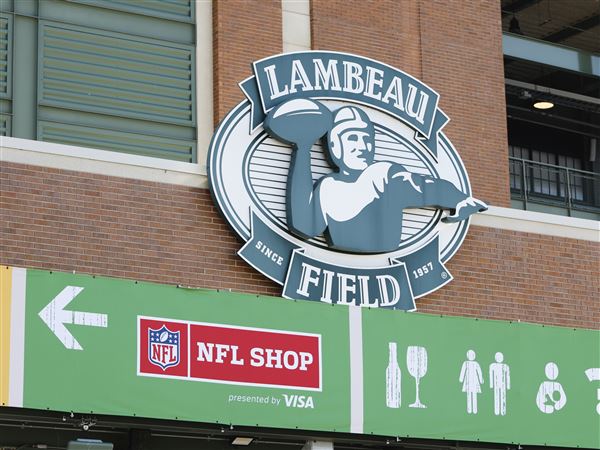Once upon a time, a long time ago, there was a little basketball team from Duquesne University that ruled the land. It was respected and feared far and wide. Its lineup was stocked with All-Americans, and stately coach Dudey Moore sat on the bench.
It might seem like a fairy tale to those who have followed the downfall of the once-proud program the past quarter century, but 50 years ago, Duquesne was on top of the college basketball world. Back then, the National Invitation Tournament was king of the postseason tournaments, and Duquesne wore the NIT crown in 1955.
The NCAA tournament wouldn't overtake the NIT as the premier postseason event until the late '60s when Lew Alcindor -- now Kareem Abdul-Jabbar -- and coach John Wooden created a dynasty at UCLA.
"The NCAA tournament was second-fiddle back then," said Ray Goss, the longtime radio voice of the Dukes who was a freshman at the university in 1955.
"We chose the NIT over the NCAA that year," recalled Mickey Winograd, a hard-nosed, 6-foot-21u20442 junior playmaker on the 1955 team who is a retired lawyer and lives in Bonita Springs, Fla., with his wife, Maureen.
The undersized Dukes slayed the giant Dayton Flyers in the NIT championship , 70-58, March 20, 1955 before a sellout crowd of 18,496 at Madison Square Garden in New York.
"I still meet people all the time, on the golf course, who remember me and want to talk about that Duquesne team," Winograd said. "We could play with anybody."
It is the only national championship in Duquesne sports history.
The Dukes never again reached those heights in basketball, although they remained among the top teams in the country in the early 1960s with Willie Somerset leading the way and in the late '60s and early '70s with Bill Zopf, Jarrett Durham, Mickey Davis and the Nelson twins, Barry and Garry, the headliners.
Duquesne also had its moments later in the '70s with Norm Nixon taking the Dukes to their most recent NCAA tournament appearance in 1977. Mike Rice coached the Dukes to NITs in 1980 and 1981.
Duquesne has had just two winning seasons since 1981 -- 15-14 in 1985-86 under Jim Satalin and 17-13 in 1993-94 under John Carroll. The Dukes' most recent NIT appearance was 1993-94.
John "Red" Manning, an assistant on the 1955 NIT championship team posted a 247-138 record from 1959-74. He trailed only Chick Davies (314-106 in 1925-43 and 1947-48) in wins.
Manning, however, preferred not to discuss Duquesne's decline.
"I don't know what the problem is with the program," Winograd said of today's Dukes.
In the 1955 NIT, Duquesne's biggest problem was figuring out a way to defeat Dayton, which had won two of three earlier games against the Dukes that season.
"Our coach made great use of two super players," Winograd said.
"Dudey designed it so we played to our strengths."
Duquesne's strengths were Sihugo Green, a 6-3 junior forward with leaping ability that allowed him to guard Dayton's 7-foot Bill Uhl, and 6-71*2 senior center Dick Ricketts, a graceful big man who could step outside and hit the mid-range jumper.
"Si never said a word. He always wore his jumping socks, those thick gray ones with a green trim. The kind hunters wear. That was his superstition," said Manning, who was 25 years old at the time and in his second year as an assistant under Moore.
"Si's touch outside with a line-drive jumper was pretty good, but he could tell you he was going around you and he'd still get around you. He would give you a fake and a real big first stride," Manning said.
"Si was his own man. He would play hard against tough teams, ease up on teams he knew he could beat."
Green is Duquesne's only consensus two-time first-team All-American.
Dick Ricketts, a senior whose brother, Dave, was a sophomore on the team, was the vocal leader of the Dukes. Dick Ricketts, Duquesne's all-time leading scorer (1,963 points) and rebounder (1,359), is deceased, along with Green and Moore.
"Dick Ricketts' personality was such that when he didn't like things he was seeing on the court he would express himself," Manning said.
"Dick Ricketts never took it easy. He played real hard in practice."
Following Moore's game plan to near-perfection, Ricketts and Green combined to score all 35 of Duquesne's points as the Dukes led the Flyers, 35-30, at intermission.
They scored the first nine points of the second half before Winograd made a free throw with 71*2 minutes gone.
"Dudey was a great pregame coach," Winograd said.
"Every move was calculated. I got a standing ovation when I made the foul shot."
Green finished with 33 points, Dick Ricketts 23, Winograd 6 and Jimmy Fallon 4 . Lou Severine came off the bench to score four, and the foul-plagued Dave Ricketts was scoreless.
Although Winograd wasn't much of a scorer, he played a pivotal role in the victory against Dayton. Dayton's Jack Sallee, who had scored 50 points in two previous NIT games, managed just two against the passionate defense of Winograd.
"I used to watch the other team's top scoring guard. I was a tough little kid ," Winograd said.
"We all played tough defense. We had to box out and do anything we could because we were a very small team."
Dayton's only offensive threats were Uhl with 25 points and 6-8 Johnny Horan with 20.
"Si would front Uhl," Manning said.
"I'll never forget watching him block one of Uhl's shots."
To illustrate Moore's laid-back coaching style, Winograd remembered a situation when he found himself being guarded by Uhl. As he dribbled near the sideline, Winograd asked Moore if he wanted to call a time out.
Moore answered, "Do what you've got to do."
Moore left it up to Winograd to figure it out.
"I guess you could say I was a coach on the court," Winograd said. "I would make all the decisions. Dudey didn't interfere."
Duquesne, which defeated Louisville, 74-66, and Cincinnati, 65-51, to reach the championship finished with a 22-4 record. The Dukes were ranked No. 6 in the Associated Press and No. 7 in the United Press International final polls.
Green led the Dukes in scoring that season with 22 points per game, followed by Dick Ricketts (20.1 ppg, 17.1 rpg), Winograd (9.0 ppg), Fallon (7.1 ppg), Dave Ricketts (7.5 ppg) and Severine (2.8 ppg).
Duquesne averaged 68.9 points and allowed 58.1.
"I actually think we had better personnel a year earlier, with Fletcher Johnson and Jim Tucker along with Green, Winograd and Dick Ricketts," Manning said.
"We had more depth the year before."
Duquesne was the runner-up in the 1954 NIT, losing to Holy Cross, 71-52, in the final. The Dukes were third in the 1953 NIT and fourth in the 1952 NIT. They participated in both the NIT and NCAA tournament in 1951-52.
"I'm sure the old-timers will remember those teams, but not many are still around," Manning said.
"Everybody on the team knew who was going to lead them -- Si and Dick Ricketts -- and Dudey didn't want to muck things up. He stayed out of the way. I had some input. I always liked Fallon and encouraged Dudey to put him in the game more.
"Back in those days, I had to coach the freshman team, too. The assistant coach did more than just coach." He laughed. "When I went to the NIT, I was the ticket-seller in the hotel room."
The 1955 NIT was dominated by teams and players with ties to Western Pennsylvania. Maurice Stokes, a graduate of Westinghouse High School and the star of the St. Francis, Pa., Red Flash, was named the tournament's outstanding player.
Joining Green, Dick Ricketts and Stokes on the all-tournament team were Dayton's Horan and Niagara's Ed Fleming, a graduate of Westinghouse.
The Cincinnati team that Duquesne defeated in the semifinals featured 6-5 Jack Twyman, a graduate of Central Catholic.
"I remember watching Duquesne's victory over Dayton on television at home in Carnegie," Goss said.
"Duquesne basketball was real big in those days. The players were like heroes when they walked around campus."
In 1955, everybody looked up to Duquesne basketball.
Sihugo Green: Had an undistinguished three-year career in the NBA with the Rochester/Cincinnati Royals, St. Louis Hawks, Chicago Zephyrs/Baltimore Bullets and Boston Celtics before he became the manager of a linen company.
Jim Fallon: Became an executive for a steel company.
Mickey Winograd: Became a lawyer.
Lou Iezzi: Became a dentist.
Lou Severine: Worked as a salesman in communications and videos.
Dick Ricketts: Pitched in the major leagues and played in the NBA before going into sales and public relations.
Dave Ricketts: Became a catcher for the St. Louis Cardinals and a minor-league instructor in the Cardinals' system.
Dudey Moore: Left Duquesne to coach at La Salle.
Red Manning: Became the head coach at Duquesne.
First Published: March 16, 2005, 5:00 a.m.
















